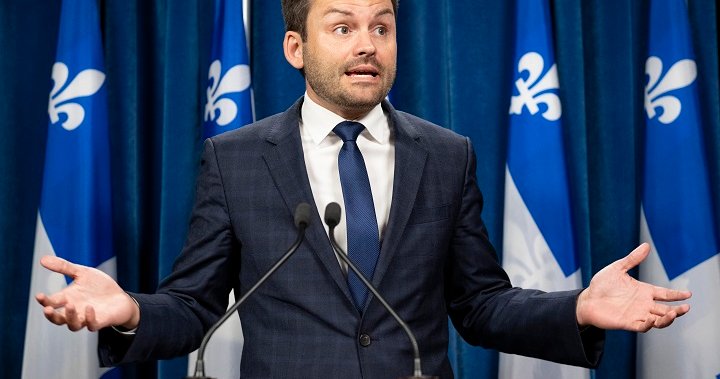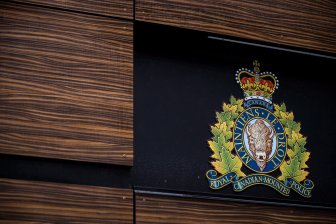Almost a year and a half after it was widely seen as being near death, the Parti Québécois is topping provincial polls. And the party’s leader, Paul St-Pierre Plamondon, is the seen as the best person to be premier.
But despite St-Pierre Plamondon’s promise of an early referendum on sovereignty, the party’s rise isn’t coming amid a surge in support for independence. Observers attribute the PQ rebound largely to the growing unpopularity of Premier François Legault and his Coalition Avenir Québec government.
“There’s no uptick in the desire for Quebec sovereignty,” Christian Bourque, executive vice-president at the polling firm Leger, said in a recent interview.
His company’s latest poll, published in Quebecor newspapers last Wednesday based on a survey this month of 1,032 Quebecers, put support for the PQ at 32 per cent, compared with 25 per cent of respondents saying they would vote for the CAQ. Support for independence was at 35 per cent, Bourque said, around where it has been for more than a decade.
Twenty-nine per cent of respondents said St-Pierre Plamondon was the leader who would make the best premier, well ahead of second-place Legault, the CAQ leader and premier, at 18 per cent.
The CAQ, which came to power on a nationalist platform that seeks autonomy but not independence for Quebec, had drawn supporters from the PQ who now appear to be returning to their old party, Bourque said. “Maybe it’s not all that surprising, with the growing dissatisfaction with the Legault government, that they’re going back to what they know and what was their party of choice in the past.”
The PQ’s rise is a big shift for the party, which won 14.6 per cent of the vote in the October 2022 election and just three of the 125 seats in the Quebec legislature, prompting questions about its future. Since then, it added another seat in a Quebec City byelection.
Get the latest National news.
Sent to your email, every day.
But while the rise is good news for the PQ, that support may be fragile, Bourque said. His company’s most recent poll suggested that nearly a quarter of likely PQ voters would vote no in a referendum on independence.

Valérie-Anne Mahéo, a political science professor at Université Laval, said government flip-flops over a tunnel in Quebec City, a plan to pay up to $7 million to bring the Los Angeles Kings to the provincial capital for two exhibition games and a teachers strike have soured many Quebecers on the government.
That has people looking for who could form the next government, and with the Quebec Liberals searching for a leader and a political identity, the PQ is better positioned as the alternative.
Mahéo agreed with Bourque that there isn’t necessarily a link between support for independence and support for the PQ.
“The two aren’t strongly connected,” she said.
While the PQ’s primary mission is Quebec sovereignty, its political program has other elements that can attract people who may not support independence. The next election is not expected before 2026.
St-Pierre Plamondon, 46, said this week he thinks support for sovereignty is headed in the right direction, and he reiterated his commitment to hold a referendum in a first mandate.
He said he will not let the polls dictate his approach.
“We don’t do politics in terms of those kinds of calculations. We do what we have to do and we tell people what we think is the best interest of Quebec and then it’s up for them to decide,” he told reporters.
Joël Arseneau, the PQ member for Îles-de-la-Madeleine who accompanied St-Pierre Plamondon at the news conference, said the Legault government isn’t getting what Quebecers want from Ottawa.
“Paul is demonstrating day after day that Canada doesn’t work for Quebec, in terms of immigration, in terms of culture, in terms of the media,” he said.
But Bourque said stalled support for sovereignty is a challenge for the party.
“The issue with the Parti Québécois, and we’ve seen this over the past 30-odd years, if they want to gain more votes, they sort of put aside the issue of sovereignty, but then they disappoint their core membership, so damned if you do, damned if you don’t,” he said.
Marie-Anne Alepin, the president of the sovereigntist Société Saint-Jean-Baptiste de Montréal, said she believes young people are increasingly open to the idea of an independent Quebec and believes that dream will be achieved in her lifetime.
“Every nation has a duty to work for self-determination, it’s the greatest social action there is, so to talk about independence, to put it back on the menu and to speak openly about it is good news for the future and good news for our children and grandchildren,” she said.
© 2024 The Canadian Press










